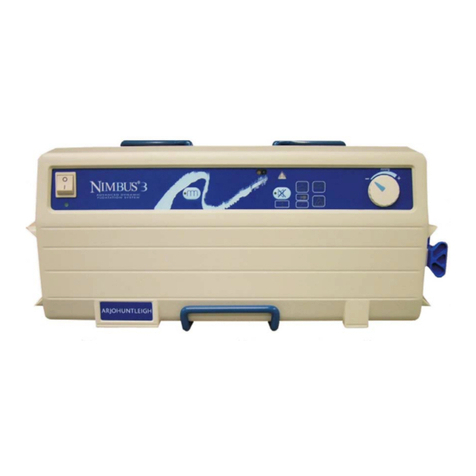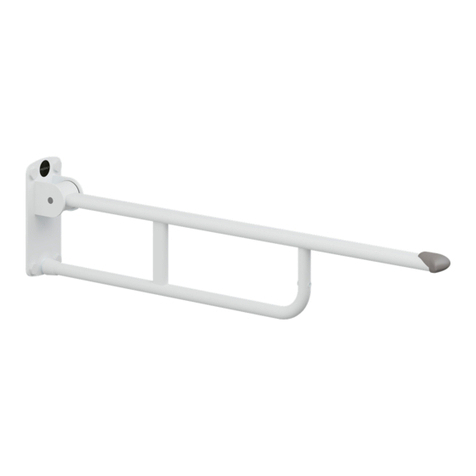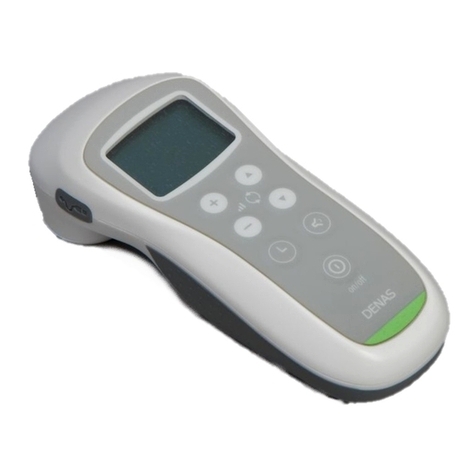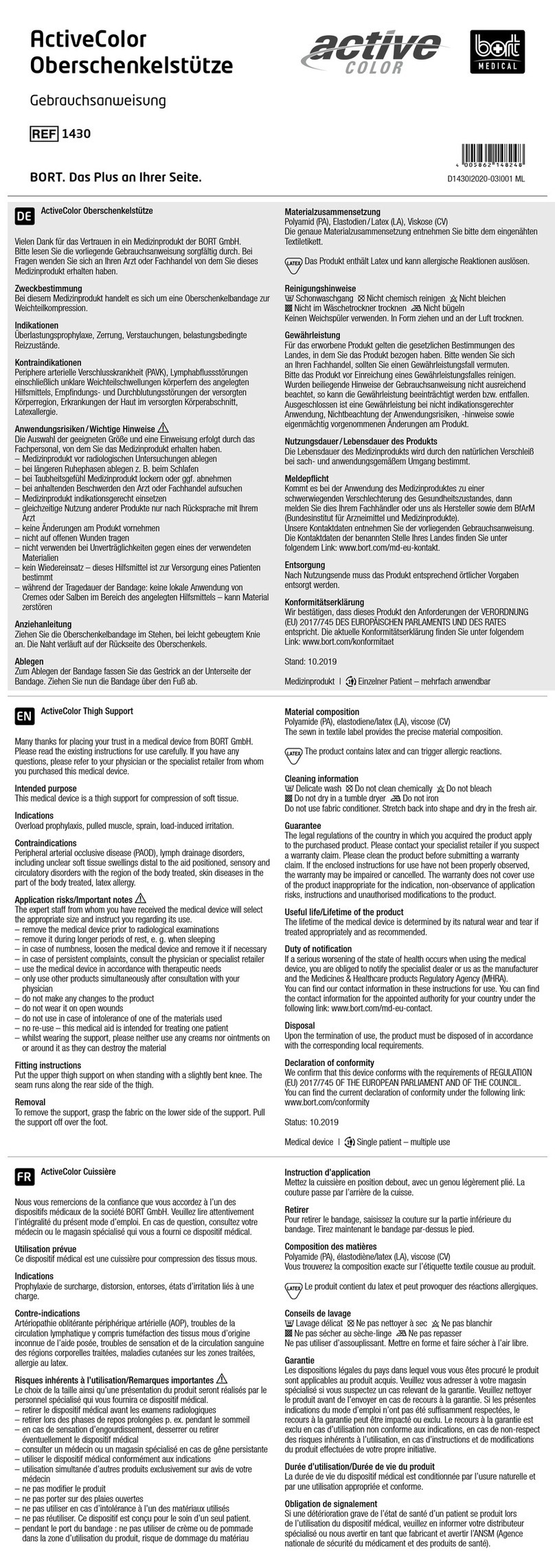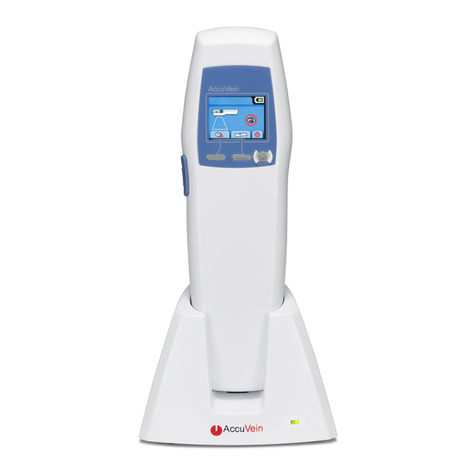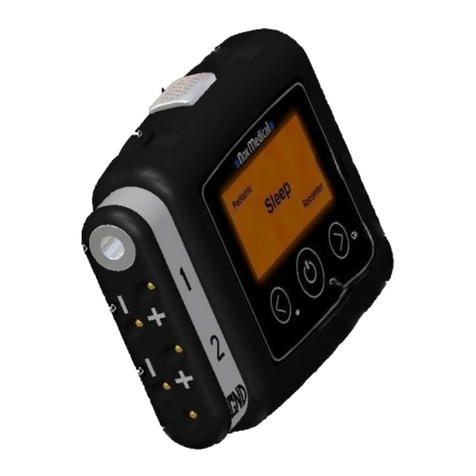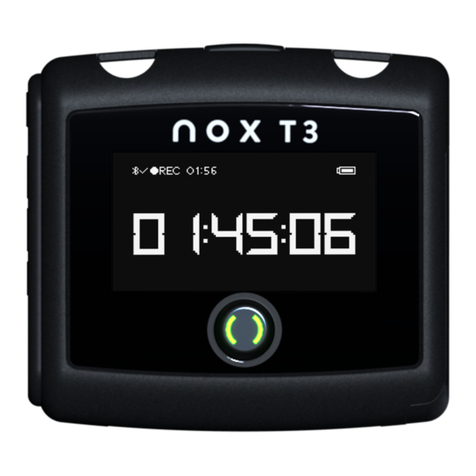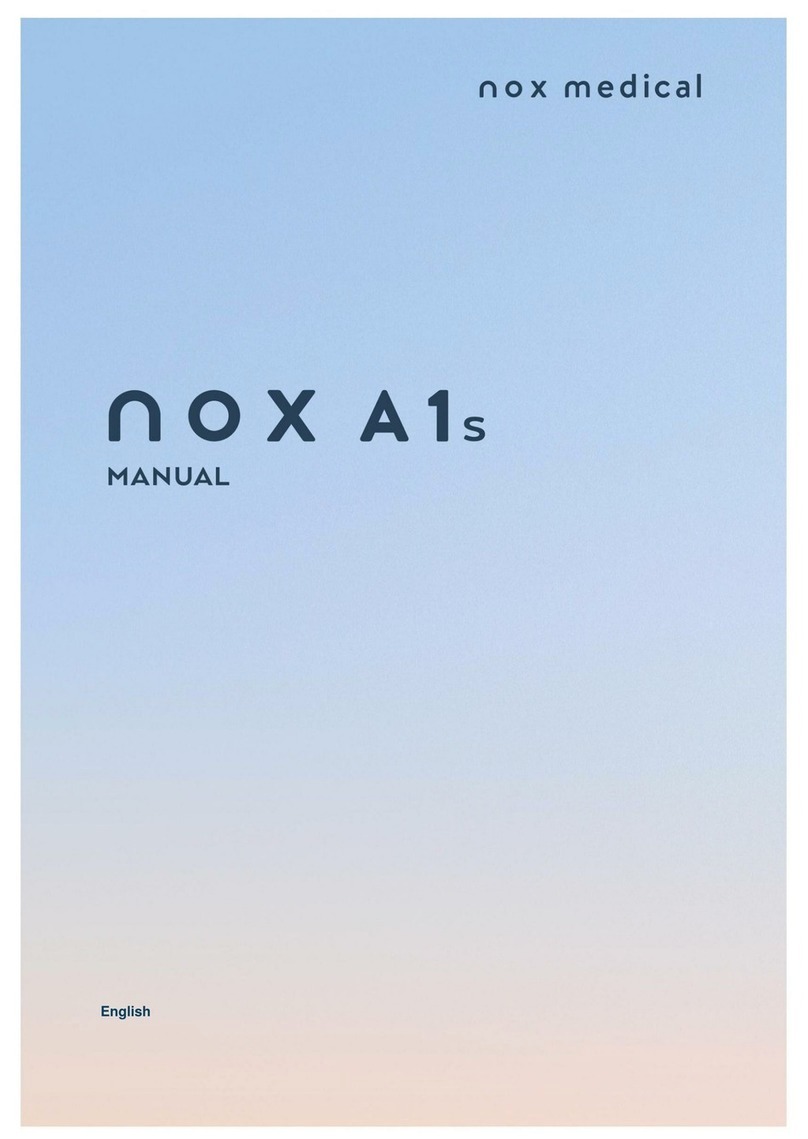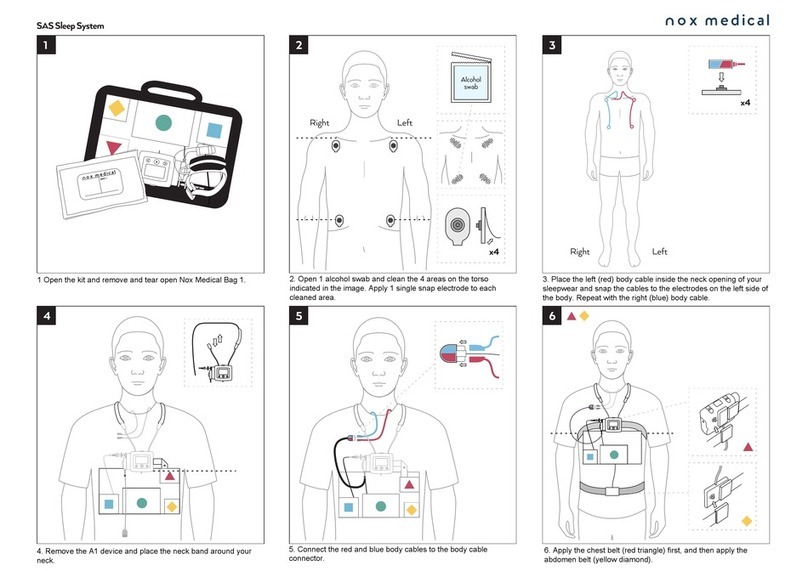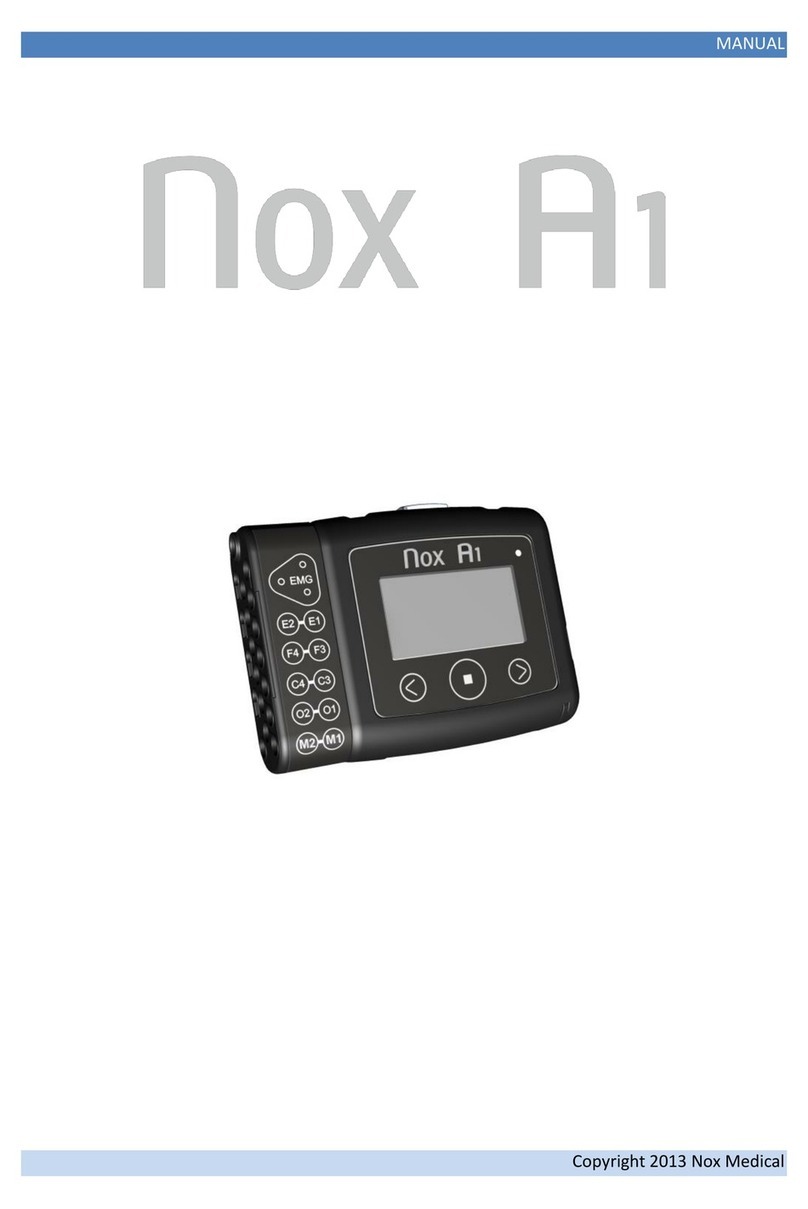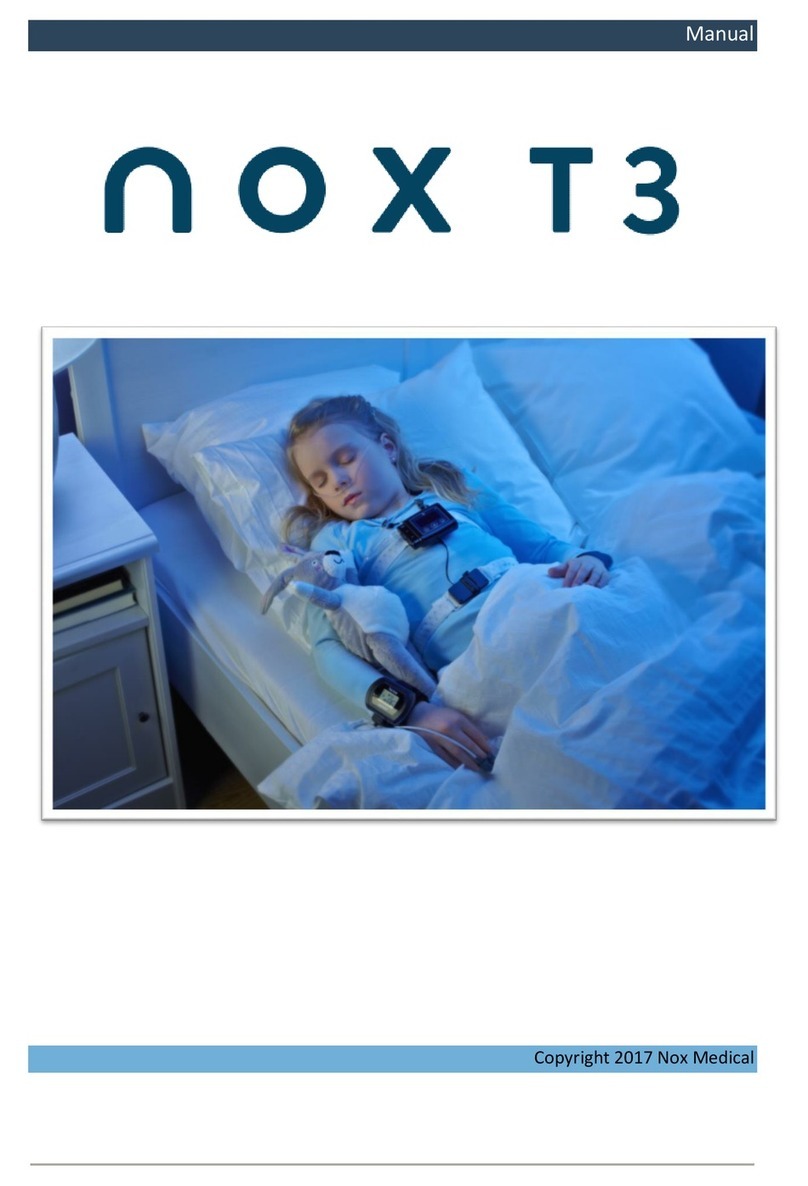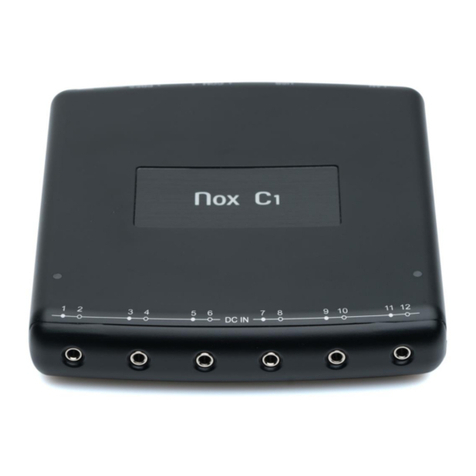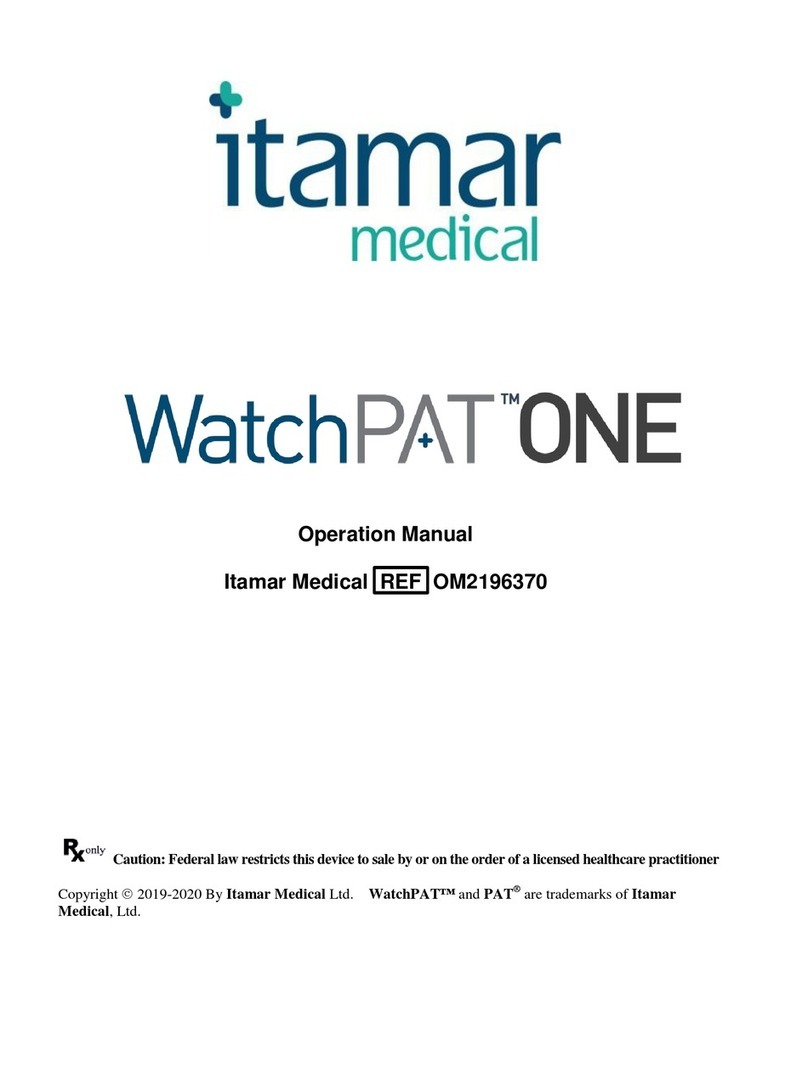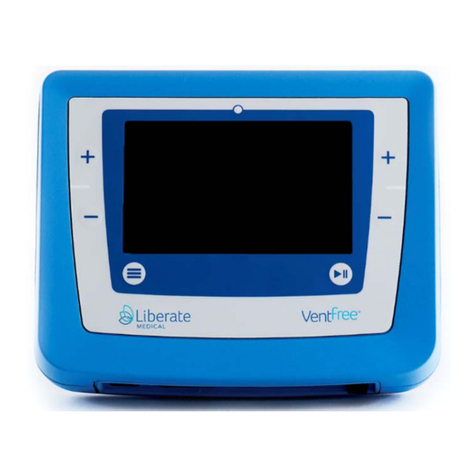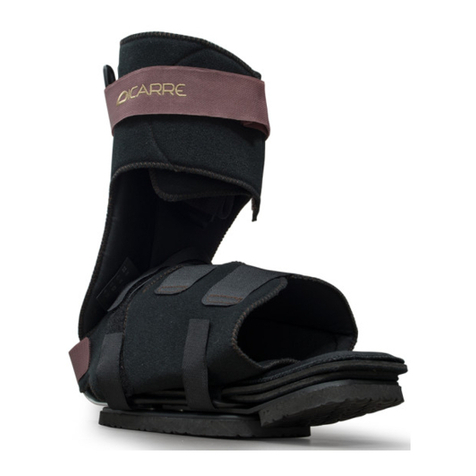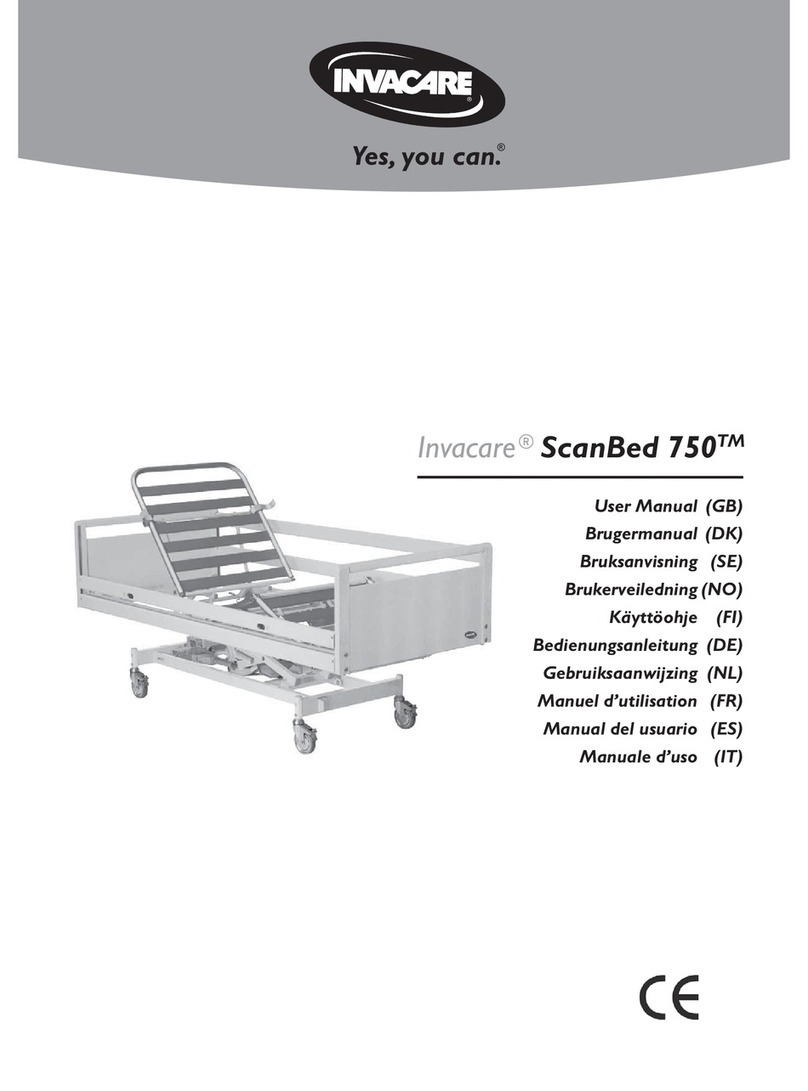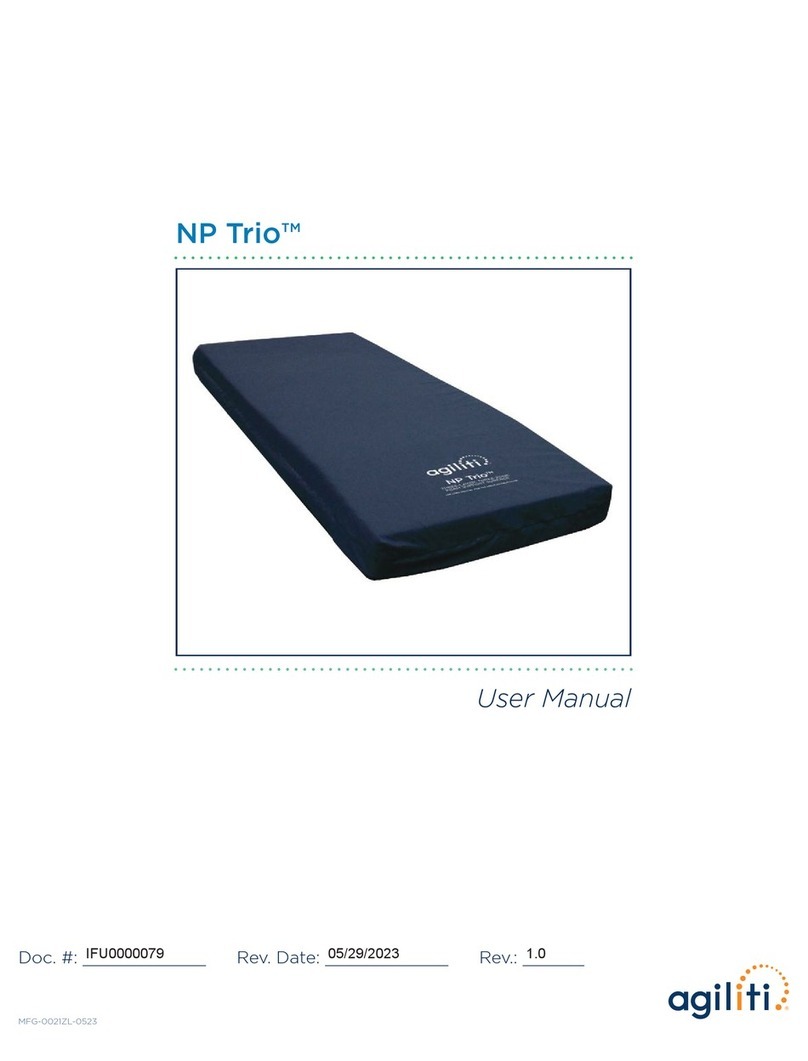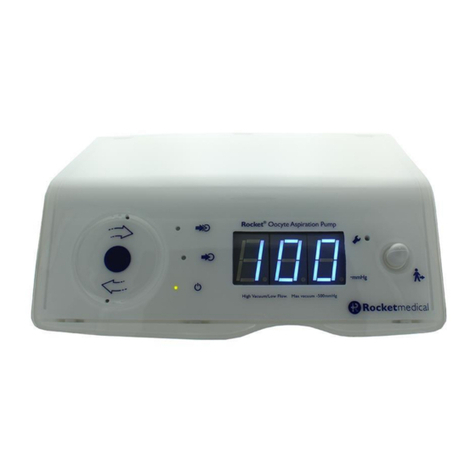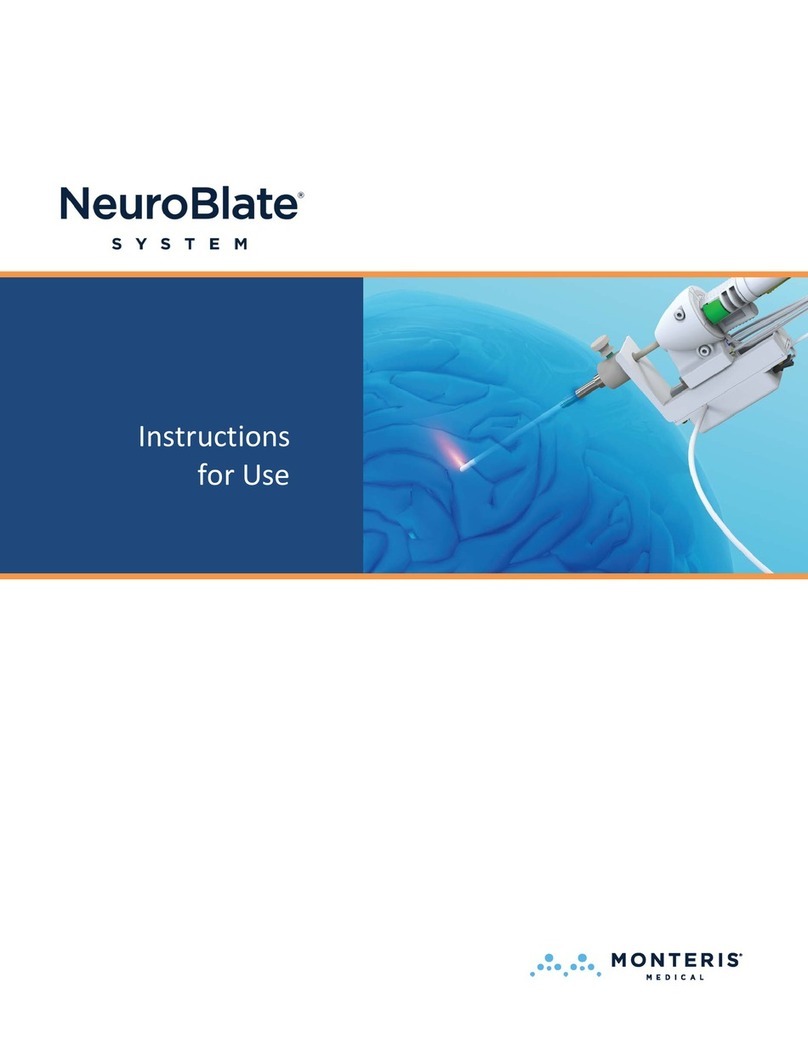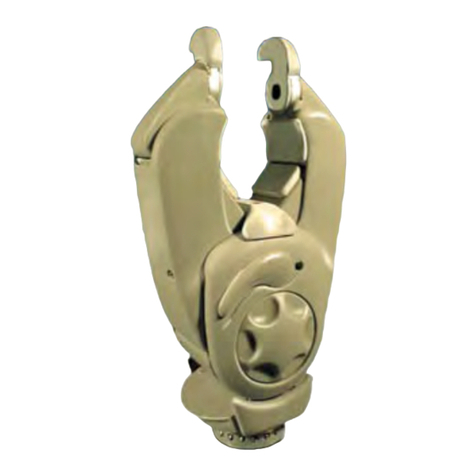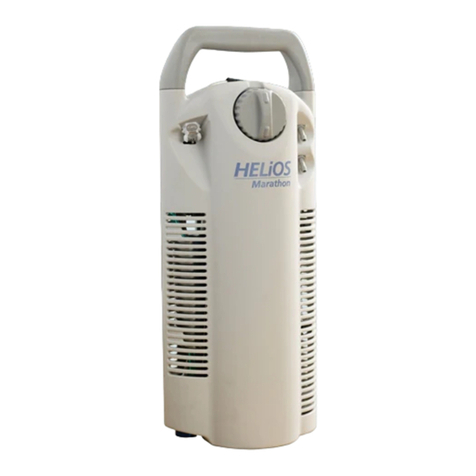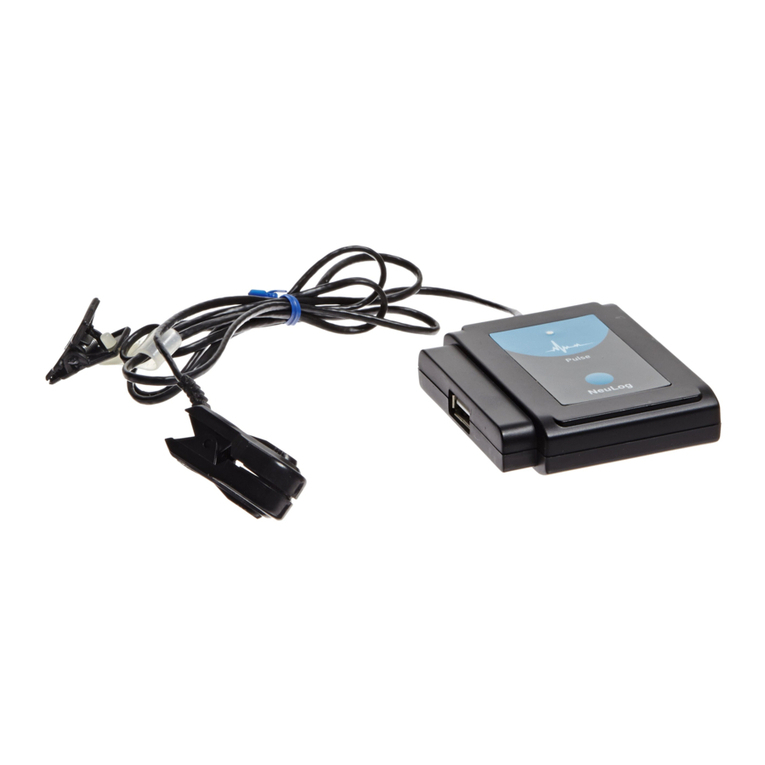reaction to the equipment materials.
Caution: The RIP belts should fit the patient snugly without being uncomfortably tight to
avoid discomfort.
Warning: The Nox disposable RIP belts are single use. Re-using the disposable RIP belts may
affect the quality of recorded signals and lead to possible incorrect treatment.
Warning: The Nox disposable RIP belts, Nox cannulas, Nox filter tube connectors and mask
pressure tubes are single patient use. Re-using the disposable RIP belts may affect the quality
of recorded signals and lead to possible incorrect treatment. Using the same disposable RIP
belt, cannula, filter tube connector and mask pressure tube on more than one patient poses
a risk of cross-infection.
Warning: Do not use damaged equipment, sensors or accessories. This may result in bad
performance of the device or patient/operator injury.
Warning: The A1 device and its accessories should be removed from the patient before use
of the USB connector to prevent electric shock. The USB connector shall only be used for the
purposes of configuring the device and downloading data from the device.
Warning: There are no user serviceable parts inside the A1 device. The A1 device should be
serviced by authorized parties only. Service performed by non-authorized parties may affect
data analysis and result in possible incorrect treatment. The warranty is void if the A1 device
is opened.
Warning: No modification of this equipment is allowed. Un-authorized modifications could
result in the device not performing as intended and cause serious harm to the patient.
Warning: Remove batteries from the A1 device if the device is not used within 30 days to
prevent damage from possible battery leakage and prevent possible minor burns to the
operator/patient.
Warning: External equipment and all auxiliary devices intended for connection to signal
input, signal output or other connectors shall comply with the relevant product safety
standards, e.g. IEC 60950-1 for IT equipment and the IEC 60601 series for medical electrical
equipment, to prevent electric shocks. In addition, all such combinations –systems –shall
comply with the safety requirements stated in the collateral standard IEC 60601-1-1 or the
general standard IEC 60601-1, edition 3/3.1, clause 16. Any equipment not complying with
the leakage current requirements in IEC 60601-1 shall be kept outside the patient
environment i.e. at least 1.5 m from the patient support. Any person who connects external
equipment to signal input, signal output or other connectors has formed a system and is
therefore responsible for the system to comply with the requirements. If in doubt, contact
qualified medical technician or your local representative.
Warning: Avoid accidental contact between connected but unused applied parts and other
conductive parts including those connected to protective earth to prevent potential serious
harm to the operator/patient.
Warning: Make sure the conductive parts of electrodes and associated connectors, including
the neutral electrode, do not contact other conductive parts including earth to prevent
potential serious harm to the operator/patient.
Warning: Electrodes should only be used by or in consultation with a healthcare provider
familiar with their proper placement and use. Not using and placing the electrodes correctly
may affect recording of data, and therefore interpretation and diagnostic.
Warning: The electrodes should be applied only to intact, clean skin (e.g. not over open
wounds, lesions, infected or inflamed areas) in order to prevent infections.
Warning: The Nox 5 Lead EEG Electrode Cables should be properly disposed of if they cannot
be fully cleaned between uses in order to prevent the risk of cross-infection between
